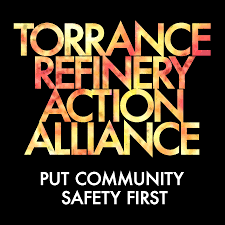Mayor Furey Backtracks; Now Swears He Paid Fair Share of FPPC Fine
Mayor Furey’s recent ethical entanglements with illegal campaign contributions have left some, like former Mayor Scotto, proclaiming that the city is looking for character, integrity and honesty in their leaders and that the City Council needs to gain back the confidence of its residents.
On the eve of an important election, new documents released by the FPPC reveal the Mayor now swears he paid his fair share of the $35,000 fine recently levied by the FPPC. This position is a complete about-face from previous comments the Mayor made on the subject.
The settlement agreement with the FPPC stipulated that the Mayor was liable for half of the $35,000 fine with representatives from McCormick liable for the other half. Yet, despite agreeing to the settlement, Mayor Furey boasted at the 12 April 2016 Council meeting that he did not pay his portion of the fine and that McCormick paid the entire $35,000. At the time the Mayor said:
“I’m not liable for half of that. I’ve not paid a penny of it.”
That admission was startling as California Government Code Section 89503 prohibits gifts to locally elected officials in excess of $250 in any calendar year. The question of whether McCormick paid the fine is also crucial because the Mayor participated in a vote involving McCormick’s contract with the city shortly after the fine was paid – an act which would raise conflict of interest concerns per Code Section 87103.
A complaint to the FPPC submitted shortly after the mayor denied paying the fine raised these very same issues. In response to that complaint, the Mayor enlisted the Kaufman Legal Group who wrote a letter to the FPPC asserting that “Mayor Furey paid his share of the FPPC settlement.”
The FPPC complaint was filed 19 April 2016. On 03 May 2016, Kaufman wrote to the FPPC seeking an extension to the response due date of 04 May 2016. Kaufman ultimately submitted the response on 13 May 2016.
That response included an explanation that Mayor Furey and McCormick had entered into an odd arrangement in which Furey paid all the legal fees stemming from the FPPC case and McCormick paid the fine with the parties anticipating that the costs would be about the same.
Kaufman’s response attests that the Mayor ultimately paid $37,719.27 in legal costs to their firm. Kaufman acknowledged, however, that final invoices were not issued until after the FPPC complaint was filed alleging the illegal gift. Indeed, in a sworn declaration by Mayor Furey included in the response, the Mayor affirmed he did not pay the final legal bills until the week of 09 May – two months after McCormick cut the $35,000 check to the FPPC on 08 March and nearly one month after the FPPC complaint was filed.
The Mayor’s declaration also reveals that $4,536 of the $37,719.27 he paid to Kaufman was for representation of his son. He then deducted that amount attributable to those services and reconciled with McCormick by issuing a payment to McCormick of $908.36.
Kaufman’s response also included a sworn declaration from Richard Roesch, President of McCormick Ambulance, attesting to the same explanation. Relying upon the letter from Kaufman, and the sworn declarations from Mayor Furey and Richard Roesch, the FPPC has closed the matter and is not planning on taking further action.
